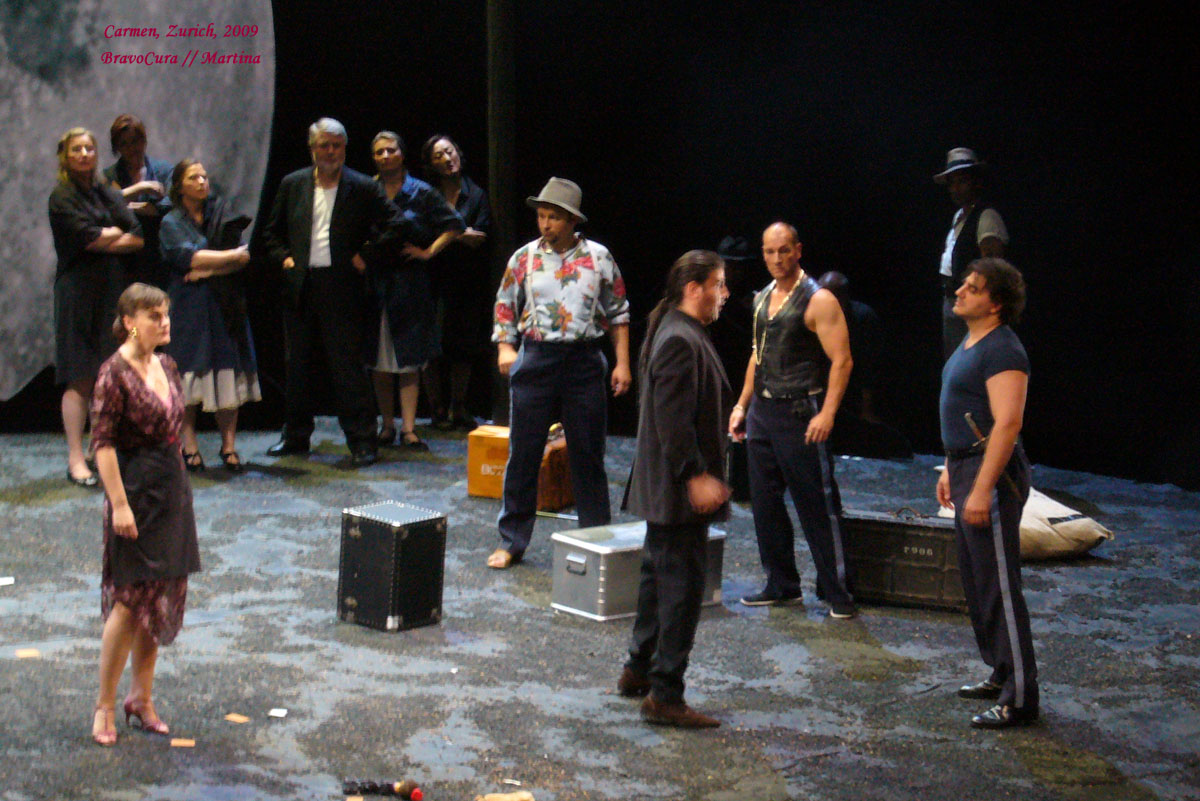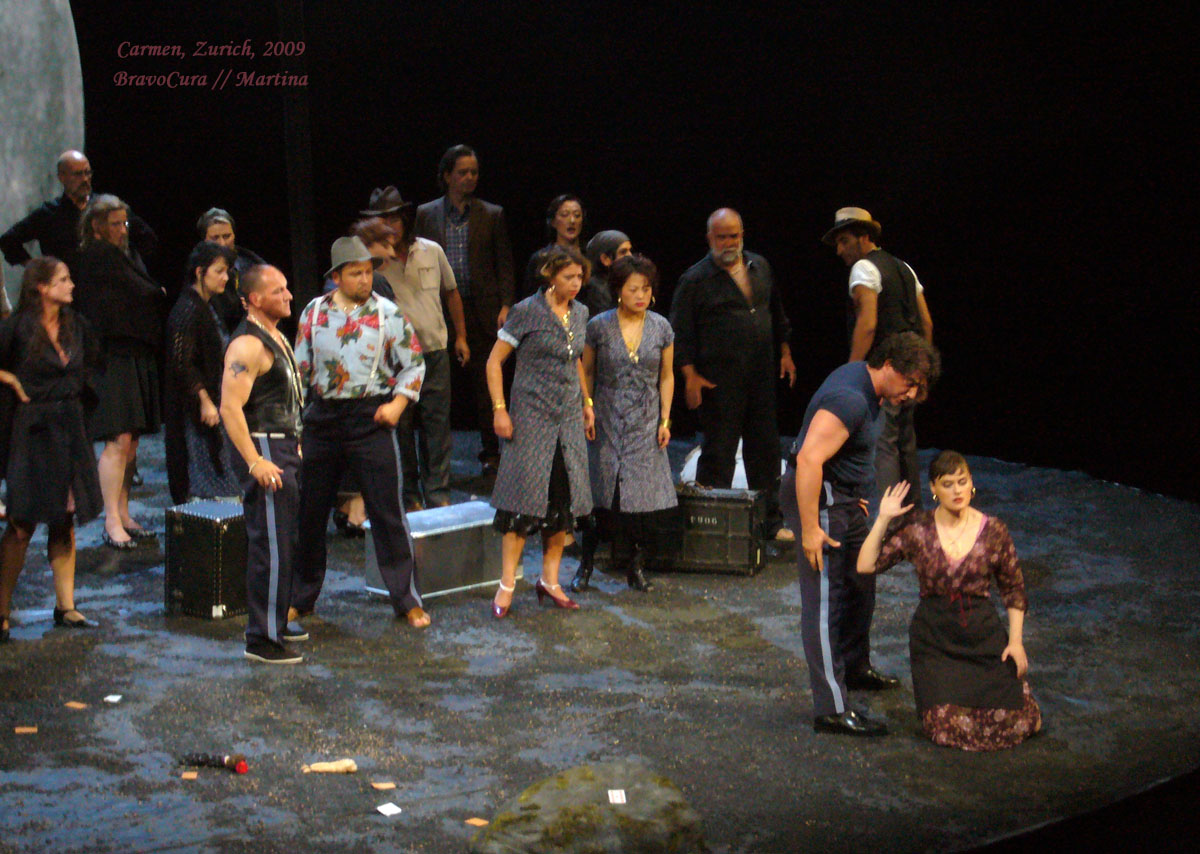Carmen Seoul - May 2004
|
Tenor José Cura comes to Korea Donga Yoon-Jong Yoo 12 April 2004
[Note: although this interview was published in English in the Korean press, we believe there is an issue in translation; for example, few would say Franco Corelli's voice was stiff and Mario del Monaco's was rude. We are presenting it as it was presented in the article but ....] Cura, a 42-year-old Argentine tenor, is regarded as one of new stars following the Big Three – Pavarotti, Domingo, and Carreras. Cura stars as Don José in Carmen, which will be performed in Jamsil Olympic Stadium from May 15 to 19. We had an email interview with him about one month before the performance. - Nice to meet you. A music magazine once wrote your voice has stiffness of Franco Corelli as well as rudeness of Mario del Monaco, tenors of the 1960s. That sounds like you’re a dramatico (dramatic) tenor, who plays the roles of hero or villain, which is quite rare these days... JC: My voice is that of spinto-dramatico to be specific. That’s why most of the roles I played were title roles of Otello or Don José in Carmen. Interestingly, most of the roles I played in the opera ended up killing someone. - This time, Carmen is the production of Gian-Carlo del Monaco, son of tenor Mario del Monaco. JC: It is the first time I work with him. Regardless of who his father is, he is a great director, particularly of Carmen. I’m looking forward to working with him. - There’s a controversy over the performance of an opera on an open-air stage in Korea. Some say it contributes to getting closer to the public while others say it fails to give the real taste of the opera.... JC: This is my first performance on a big stage with 40,000 audience members. I am not Mick Jagger. I hope my real voice can be delivered to the audience even with the use of a microphone. If such problems are resolved, I think an open-air stage would be exciting for the audience. - What do you think about Don José in Carmen? JC: I don’t want to disappoint others, but I think he is not a romantic but a murderer, a psycho. He didn’t kill Carmen because he loved her. He killed her because she insulted him in front of other people. - You have also produced recordings such as Rachmaninov’s Second Symphony conducting the Sinfonia Varsovia to favorable reviews. JC: I began conducting at the age of 15 and became a tenor at 30, so I can’t separate myself from conducting. I have plans to conduct operas such as Verdi’s Un ballo in maschera before performing in Korea. I will continue to do both in the future. |
| Sights and Sounds of Seville to Hit Seoul
Korean Herald 10 May 2004 An upcoming production of the opera classic Carmen will give Seoul audiences a chance to experience a hot Andalusian night at the Jamsil Olympic Stadium this month. The outdoor opera, featuring a life-size bull ring and one of opera's sensational stars, promises to be a solid example of the "bigger is better" philosophy. Carmen will be performed at the Olympic Stadium at Jamsil Sports Complex from May 15-19 and will star tenor Jose Cura and mezzo-soprano Elena Zaremba. With the approach of warm weather, Carmen is continuing last year's new trend of bringing opera to some of Seoul's largest outdoor sports venues. A successful run of Puccini's Turandot last May at the World Cup Stadium was followed by Aida in the fall, which was deemed a huge artistic and commercial failure. La Boheme, billed as a Christmas season classic, received mixed reviews last December. It has come as no surprise that the upcoming Carmen, with a reported budget of about 7 billion won, has raised a few weary eyebrows concerning its artistic credibility and financial viability. A representative of Benex Art & Culture, a local performing arts management company, reported "strong" ticket sales, with the bulk of the tickets sold to corporate sponsors. "Everything is going as scheduled. The sets are almost complete and the stars will be flying in for rehearsals next week," the official said. Ticket prices are similar to those introduced last year, with stadium seats starting at 50,000 won and some orchestra-level seats fetching up to 600,000 won. The production is headed by Gian-Carlo del Monaco, a highly regarded Italian stage director whose productions of several Puccini operas have been staged at the Met. Through a 140-meter-long stage and a video screen the size of a football field, del Monaco hopes to recreate the sights and sounds of 19th-century Seville. Among the performers will be 50 dancers from Ballet Antologia, a flamenco dance troupe from Spain. Original plans also included staging a real, live bullfight, but logistics and protests from animal rights groups made that impossible. Most important of all, Carmen boasts top operatic talents such as Argentine tenor Jose Cura and Russian mezzo Elena Zaremba playing the title role. Rounding out the casts are baritone Franck Ferrari, playing the role of Escamillo, and soprano Maya Dashuk singing the part of Micaela. Cura, one of the best-known tenors of his generation, will make his Seoul debut as Don Jose. At 33, the former protege of Placido Domingo has earned the distinction as one of the next "Three Tenors," widely praised for a rare combination of vocal talent, dramatic sensibilities and musical taste. Carmen is a story of a tempestuous Gypsy woman who chooses to die rather than be a slave to any man or destiny. The man who loves her is Don Jose, an army officer who throws away everything only to push them both to the edge of madness and death. In the final act, Don Jose pleads with her to run away and live together with him forever, but Carmen proclaims that she was "born free and will die free." As Carmen leaves to see her new lover, Don Jose stabs her and confesses to the murder of the woman he once loved. The opera was written by French composer Georges Bizet, which featured many stylized depictions of Spanish and Gypsy folk melodies and rhythms, popular in French music at that time. The opera was first performed in 1875, but its unconventional heroine and themes conflicted with the bourgeois morality of the times, and it was not until later that it became one of the most popular operas of all time. Carmen will be performed May 15, 16, 18 and 19 at 7:30 p.m. at the Olympic Stadium at Jamsil Sports Complex.
|
|
Carmen Stages Largest Outdoor Show in Korea International Spouses of Koreans Association 8 May 2004
[Excerpts]
Carmen, the story of a gypsy who dies at the hands
of her former lover, is scheduled to run in May at Seoul's Olympic
Stadium. The opera has been seen by millions worldwide, but its
director promises this will be different from previous productions.
|
|
Eye-Witness Review!
José Cura As Don José Made His Impressive and Successful Seoul Debut
Hyunjoo
Carmen, the world’s most beloved opera of seduction and betrayal, continued last year’s new trend of bringing opera to some of Seoul’s largest outdoor sports venues: A successful run of Puccini’s “Turandot” last May at the World Cup Stadium was followed by “Aida” in the fall, which was deemed a huge artistic and commercial failure. Experienced from the previous operas, there had been anxiety about this $600,000 budget opera concerning its artistic credibility and financial viability. However, in a word, it turned out to be an exemplary event in both respects.
It was the very production that showed a large outdoor opera’s possible advantages. The production is headed by Gian-Carlo del Monaco, son of the famous tenor Mario del Monaco, and he seems to study a lot about the venue to solve problems that huge scale outdoor operas inevitably face. Through a 140m long stage and a 100m*20m size video screen above the stage, del Monaco certainly represented the performance effectively for 40,000 audiences; the screen successfully caught subtle expressions of the actors/actresses. The stage was filled with 550 performers and splendid lightings. 50 dancers from Ballet Antologia, a flamenco dance troupe from Spain recreated the exotic and passionate mood of 19th century Seville in the air. Original plan also included staging a real, live bullfight, but logistics and protests from animal rights groups made that impossible.
The performance as a whole was captivating.
No doubt that the star of the night was José Cura, the most promising tenor of his generation. His acting at Act 1 was not really natural but his rich voice at least offset the weakness in acting. On everybody’s expectation of the night, La Fleur que tu m’avais jetée at Act 2, José Cura proved himself to be equivalent to his fame. His dramatic and passionate song made the audiences who were rather inattentive all through the opera stunned into silence. At the climax of the song, I had goose bumps all over me, listening to that strong, yet touching voice. I felt that some part of me hidden somewhere deep inside me, suddenly was awakened: It was literally a breath-taking moment.
Our next star was soprano Maya Dashuk, Micaela. She also deserves an accolade. Her voice was both true and appealing. Just like her character who devoted her heart to Don José, her crystal clear and beautiful voice, a good contrast to Carmen’s sultry tones, impressed not only Don José but also audience. Her Act 1 duet with Don José was a real treat to hear.
However, Elena Zaremba, Carmen could have sung out a little more. Admittedly, for much of Act 1 she was not quite at her peak – she always seemed a little constrained. (her Habanera was one of the worst I have ever heard, to be honest. Not really my personal type.) But as the performance went on, her voice seemed to warm the stage and when singing of her fate dealt by the cards in Act 3, she gave a moving performance. In addition, her acting was a rare excellence which could convince people that she was an expert Carmen. She was truly a voluptuous temptress, teasing and seducing every man in sight waving her skirts and wrapping her legs around Don José.
Franck Ferrari played fairly good as a self-confident, arrogant Escamillo. His assured performance led the most famous aria of the opera Votre toast, je peux vous le vendre to be a little loose, which caused difficulty in keeping time with the orchestra for a minute. However, his performance was good enough to win Carmen by Act 4.
Daniele Tramontani should be highly praised for making the surprisingly fine sound system that brought each note clearly to our ears. It was way beyond my expectation to hear this fine quality of sound in an open stadium.
Personally I dreamed of enjoying opera under the starry night sky, but the weather was pretty unfavorable from early in the morning: it rained until around noon and was very cloudy and windy. Fortunately, though my dream could come true, the rain stopped and we could see the marvelous performance. The sky got clearer as the performance progressed, so we could see a couple of bright stars right above the stage, and there even was a flashy shooting star in the middle of the intermission which caused exclamation and aroused the mood.
The only miss was a good chorus and intense concentration of the audience. The chilly wind was harsh for the people sitting in the stadium for 3 and a half hours. There were actually some people who left the site in the middle of the performance because of the cold weather, but many more kept their seats until the end – to my surprise, many of them were children, and they were totally absorbed in the opera!! The production received warm and friendly applause and reviews from both audience and press.
|
|
The Spectacle
|



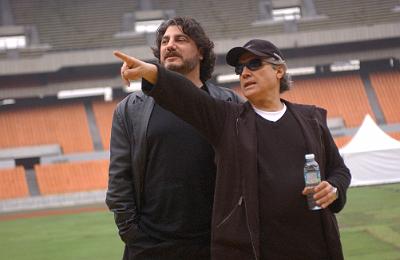



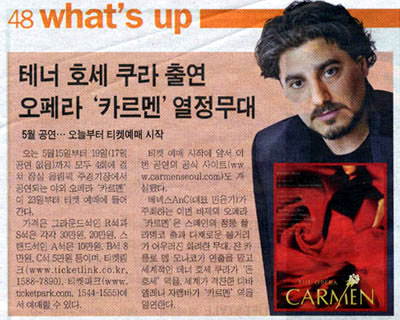










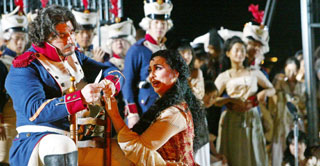
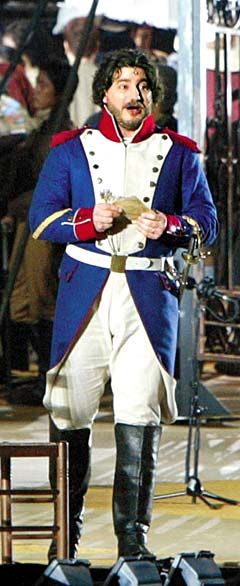








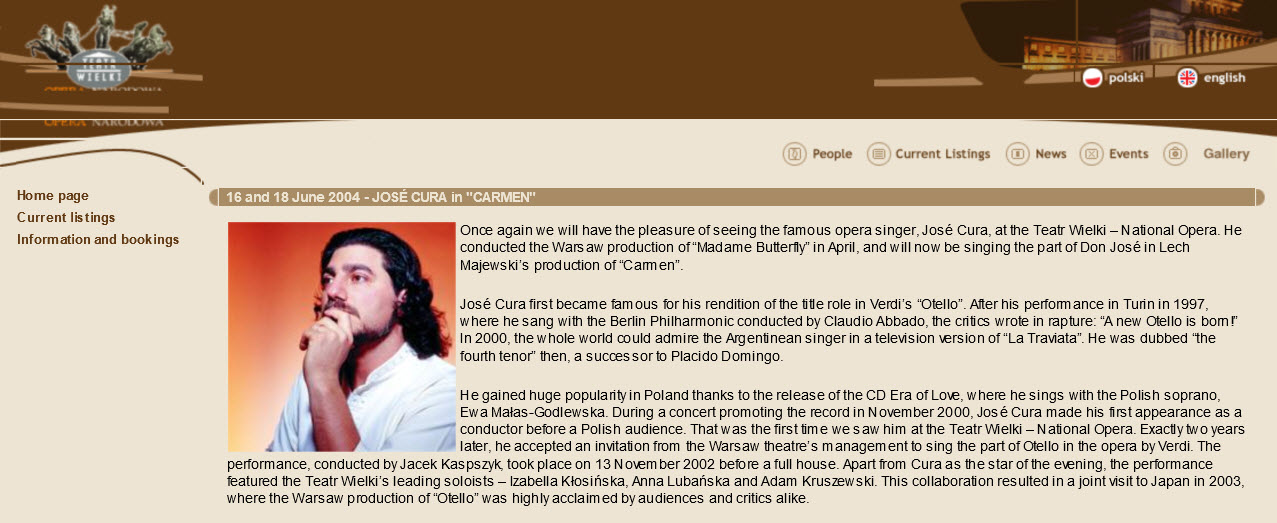

.jpg)
.jpg)

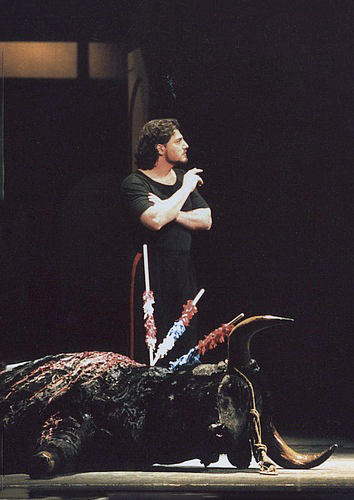
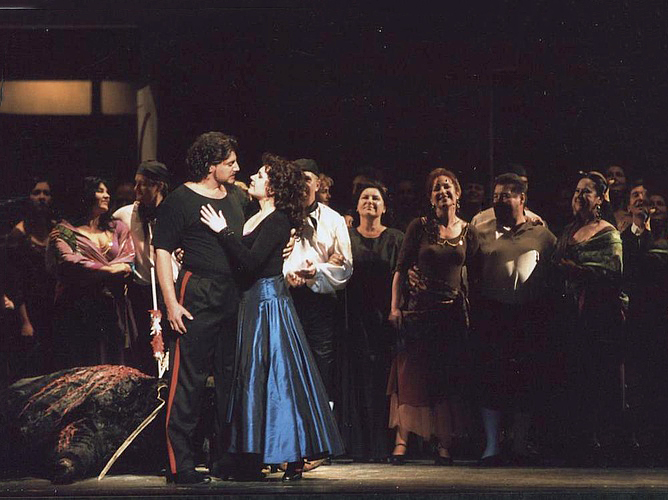

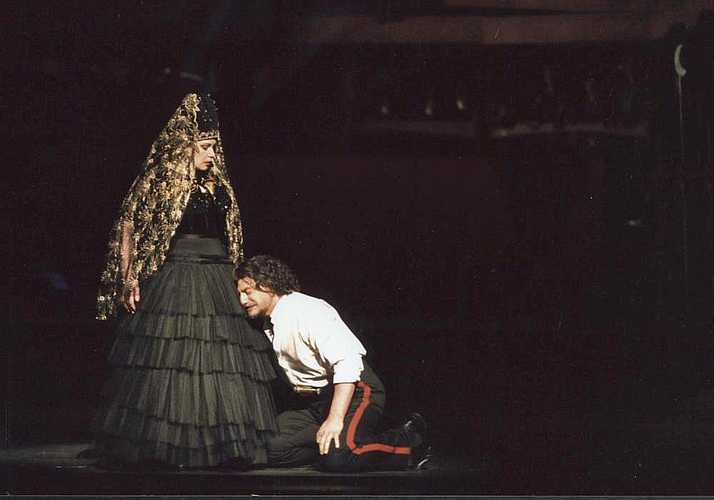
.jpg)










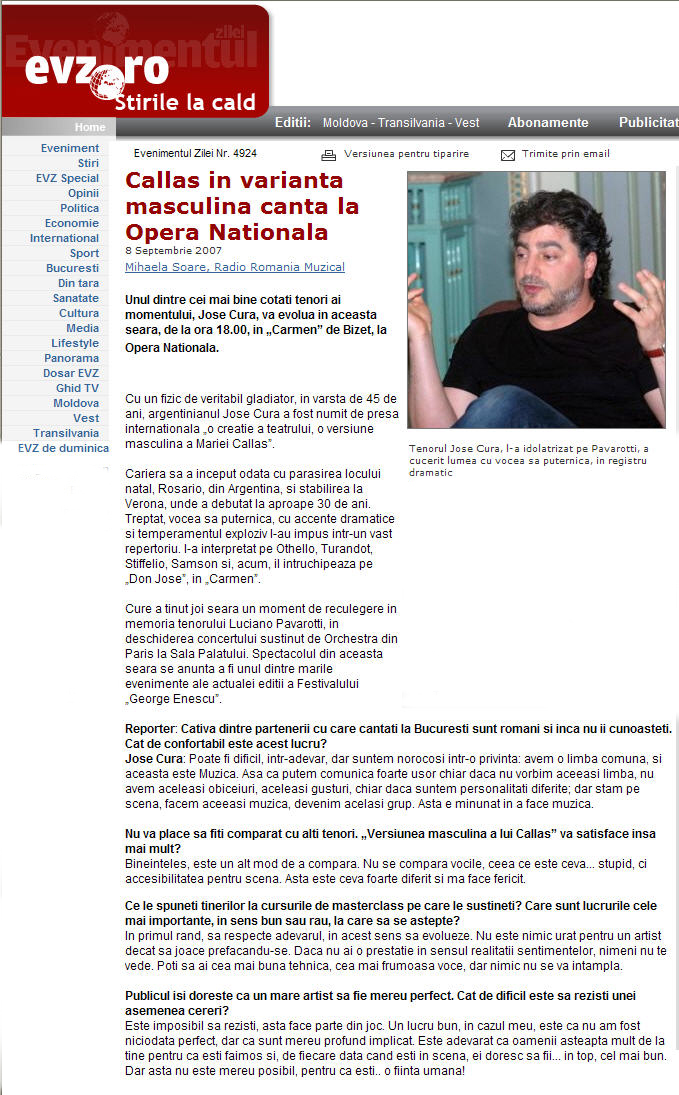
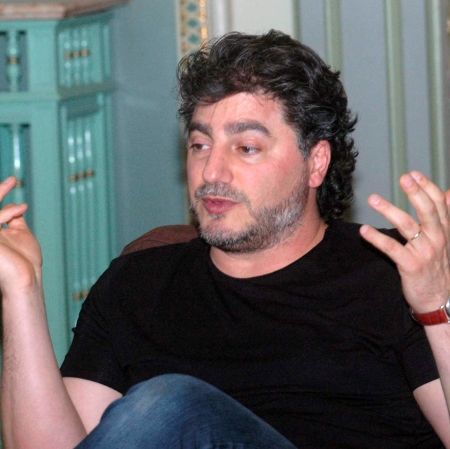
.jpg)
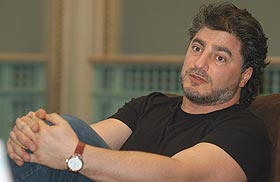
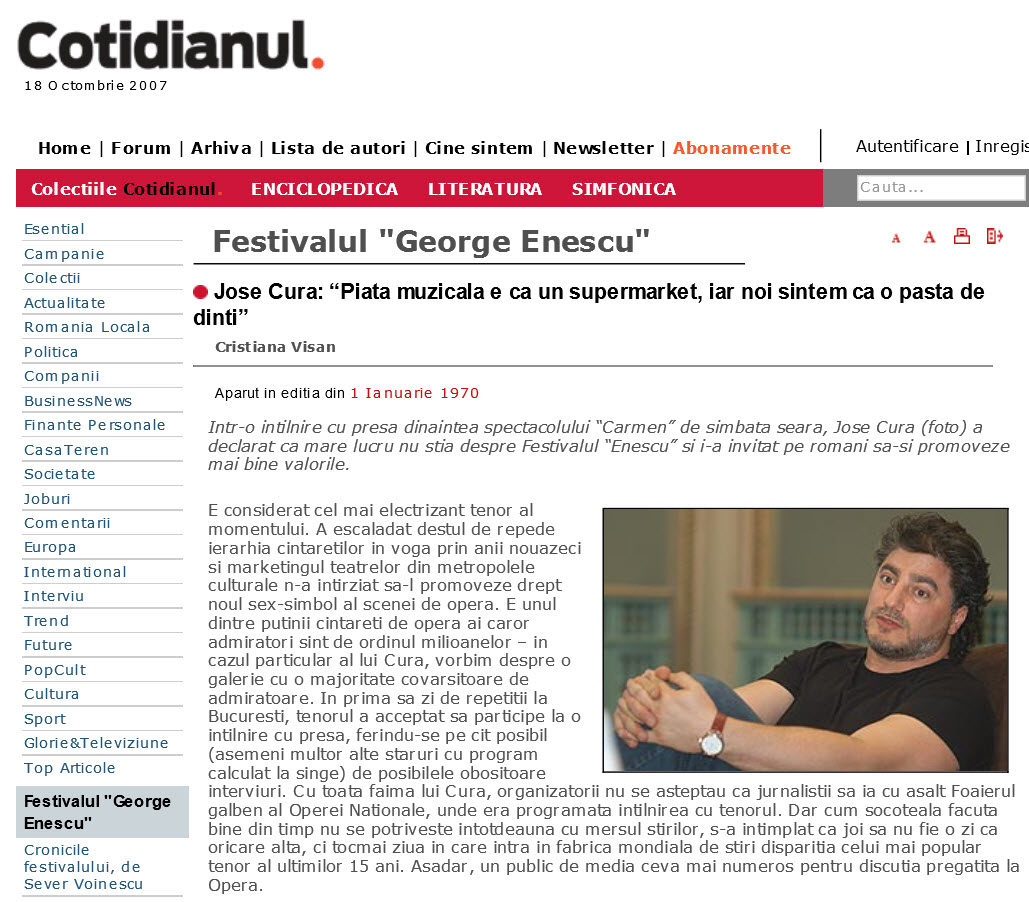
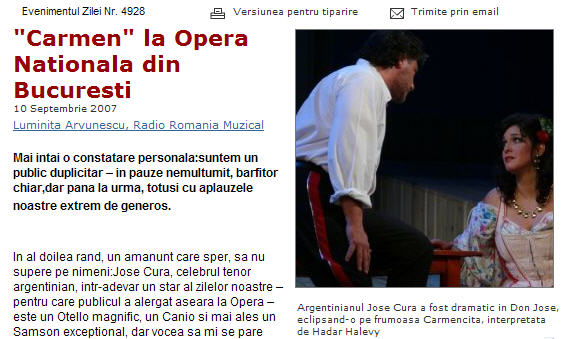


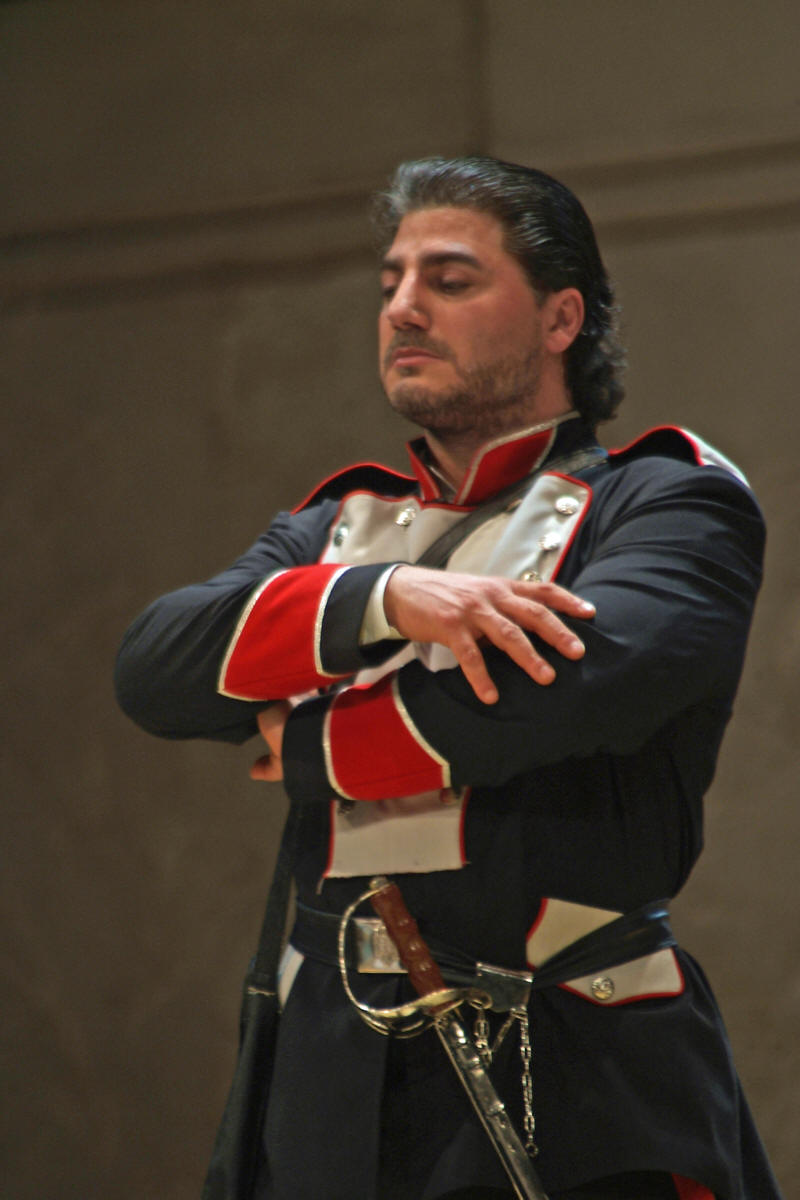
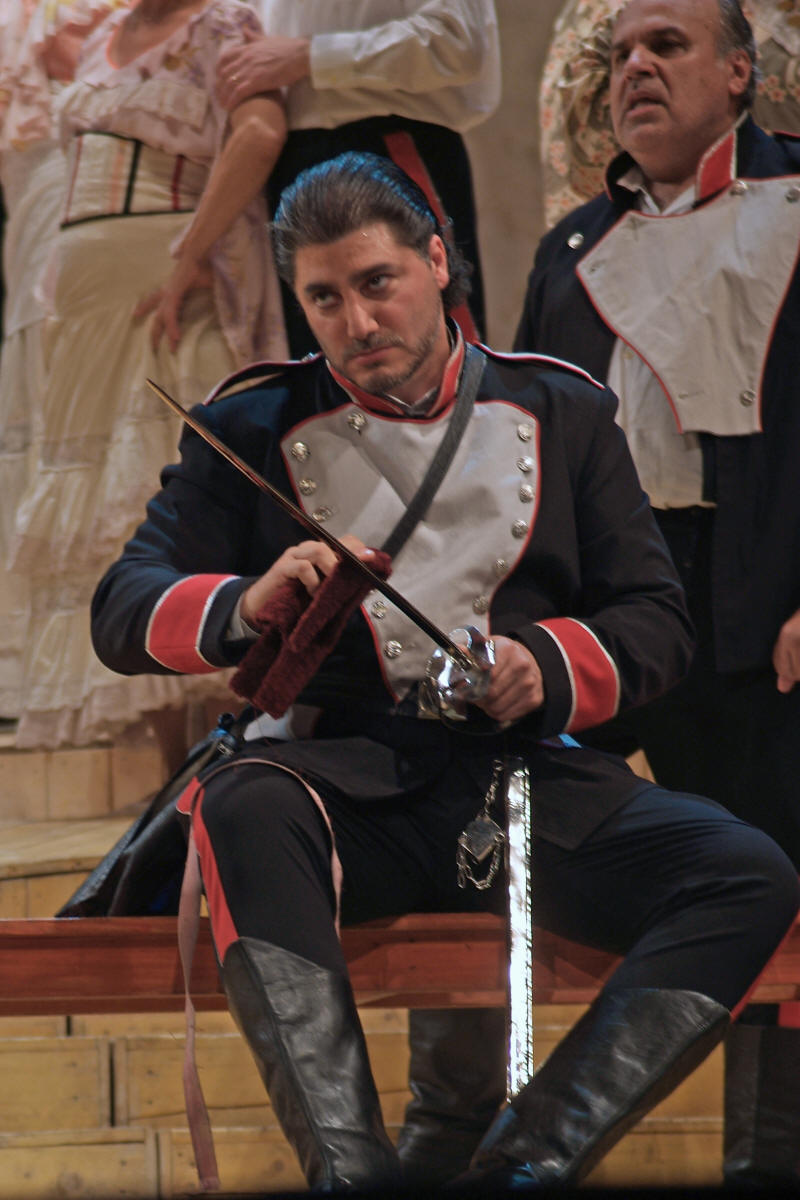
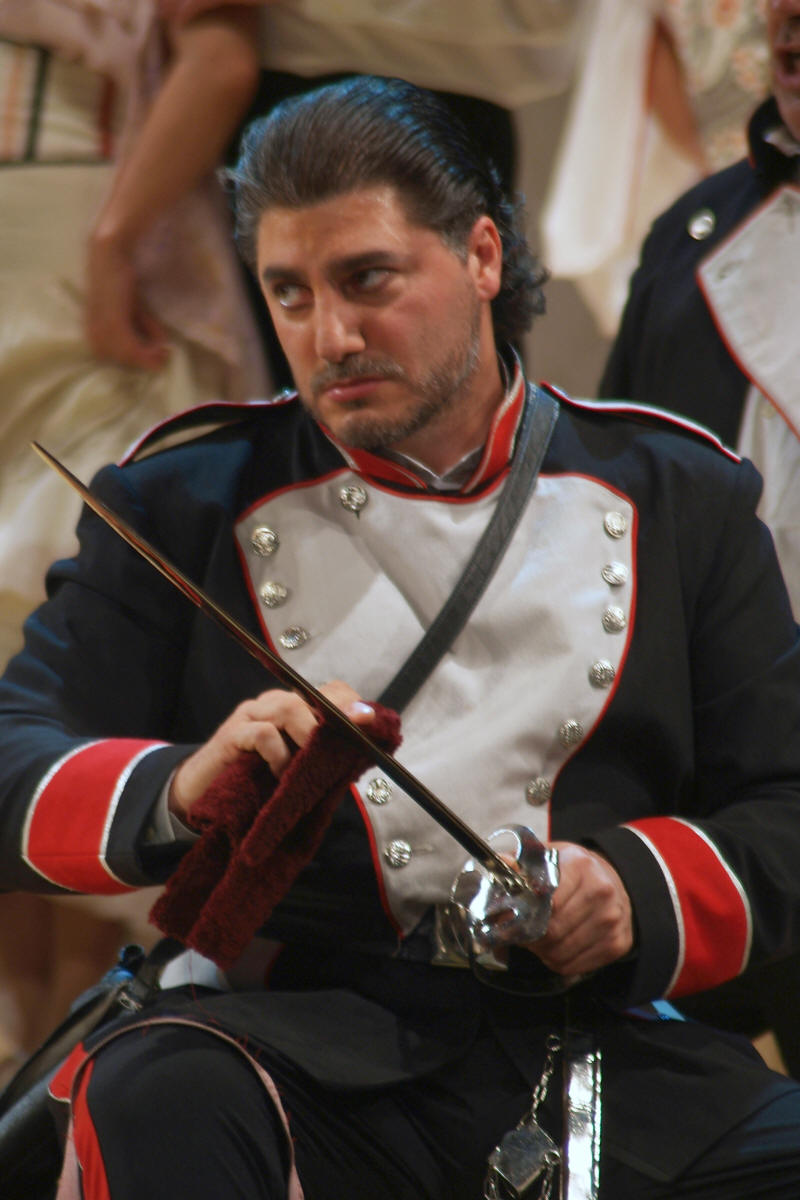
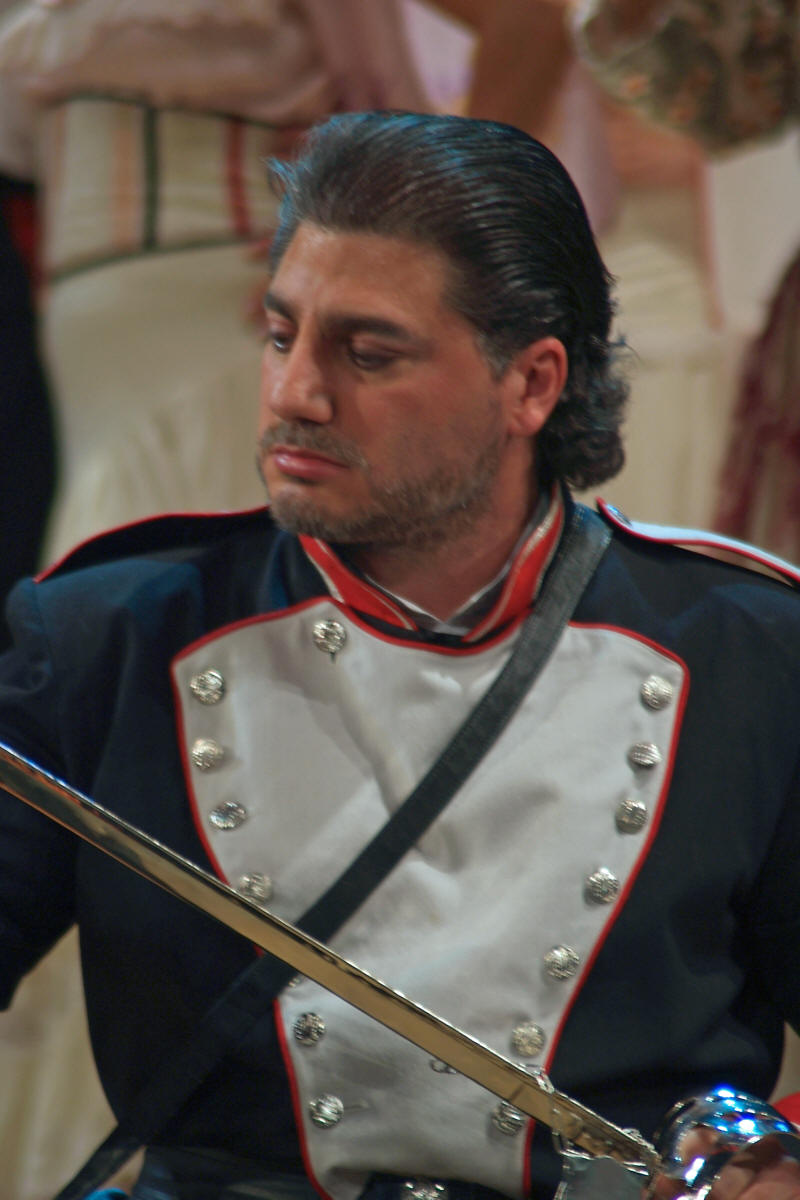
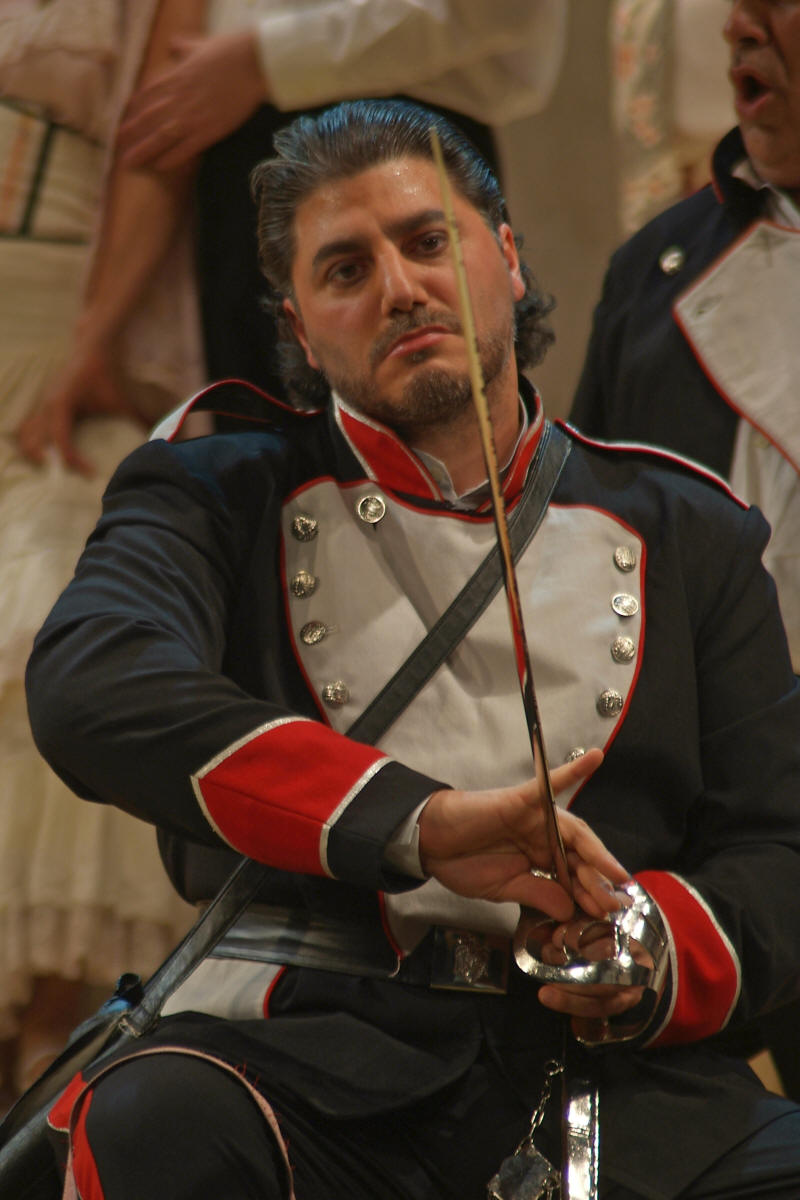
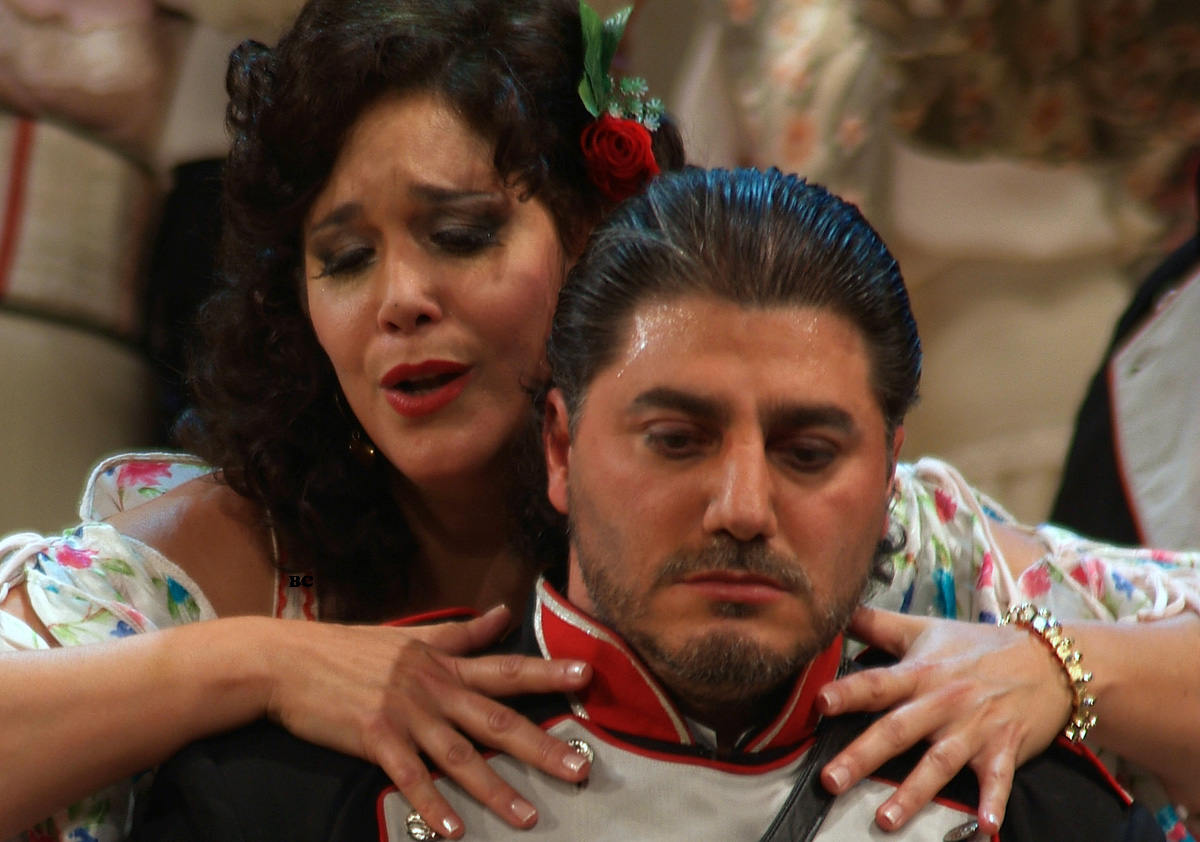
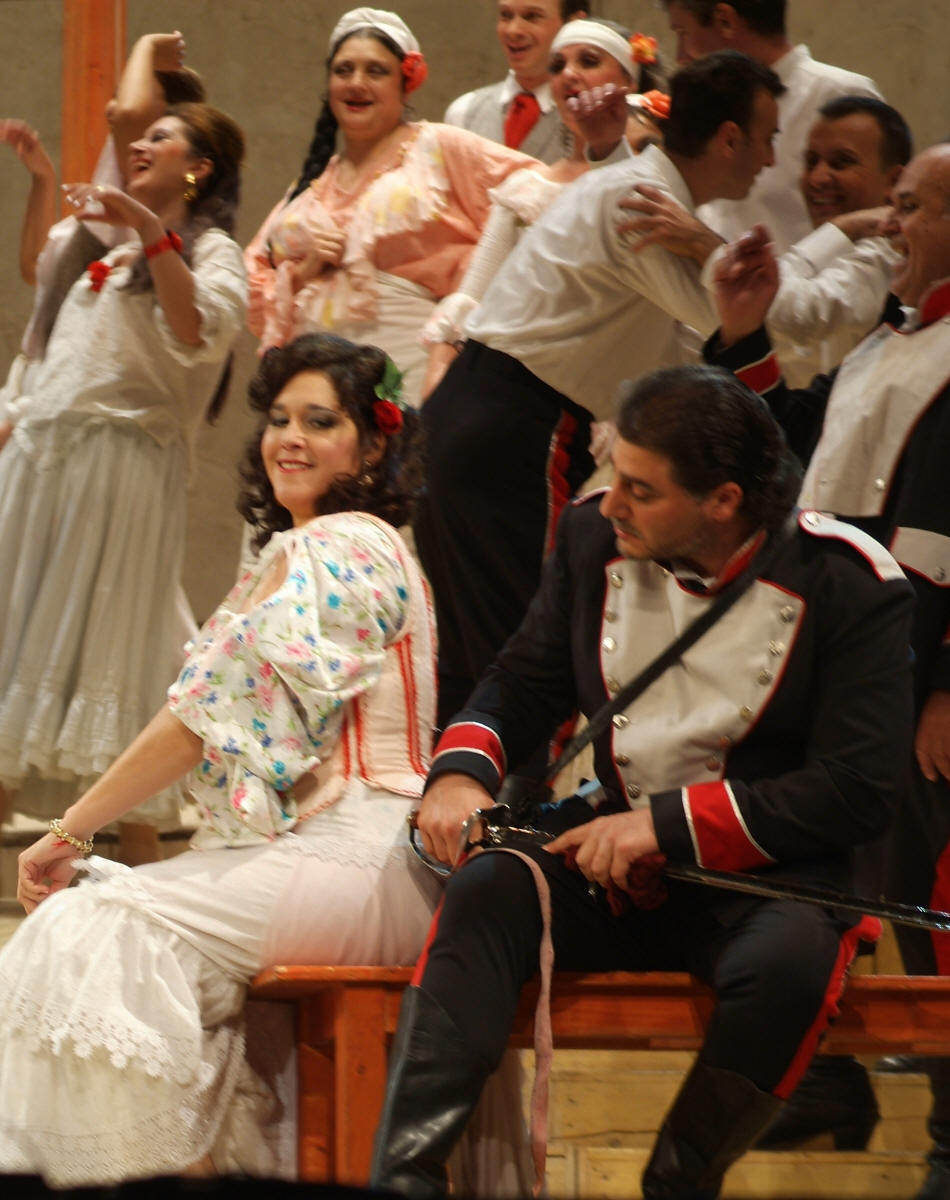
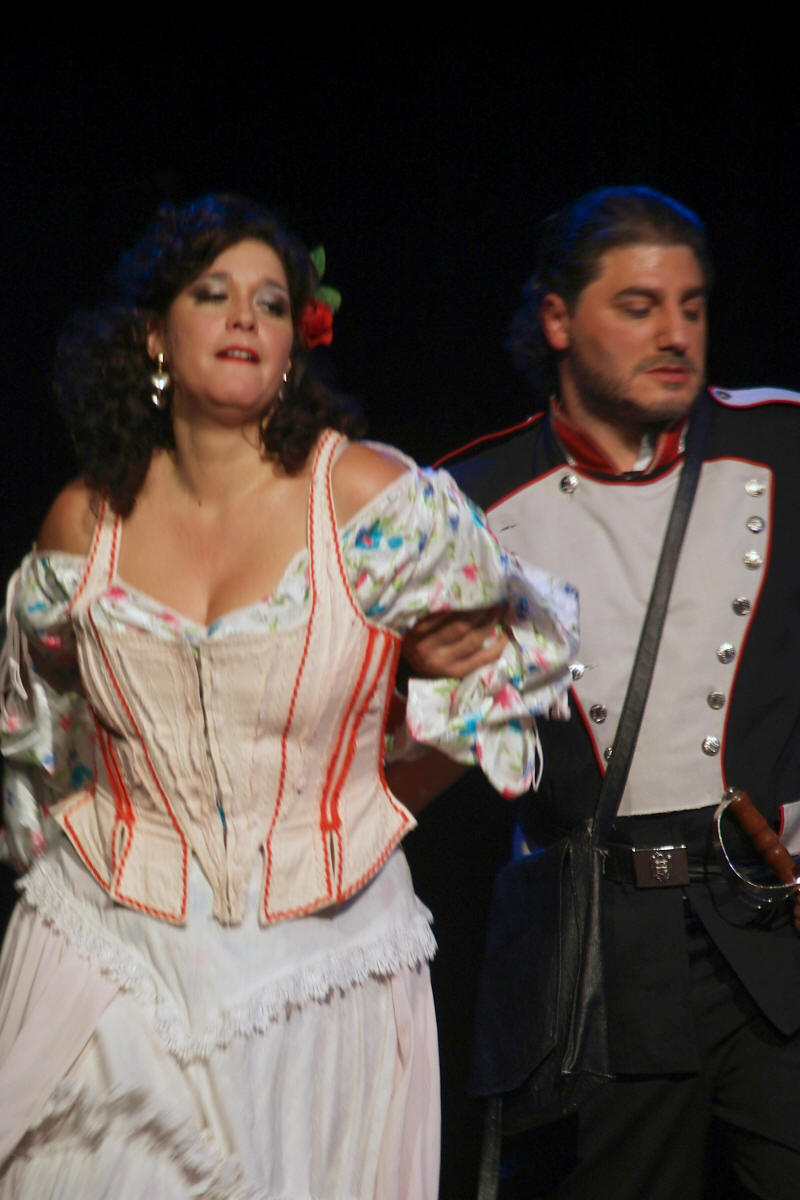
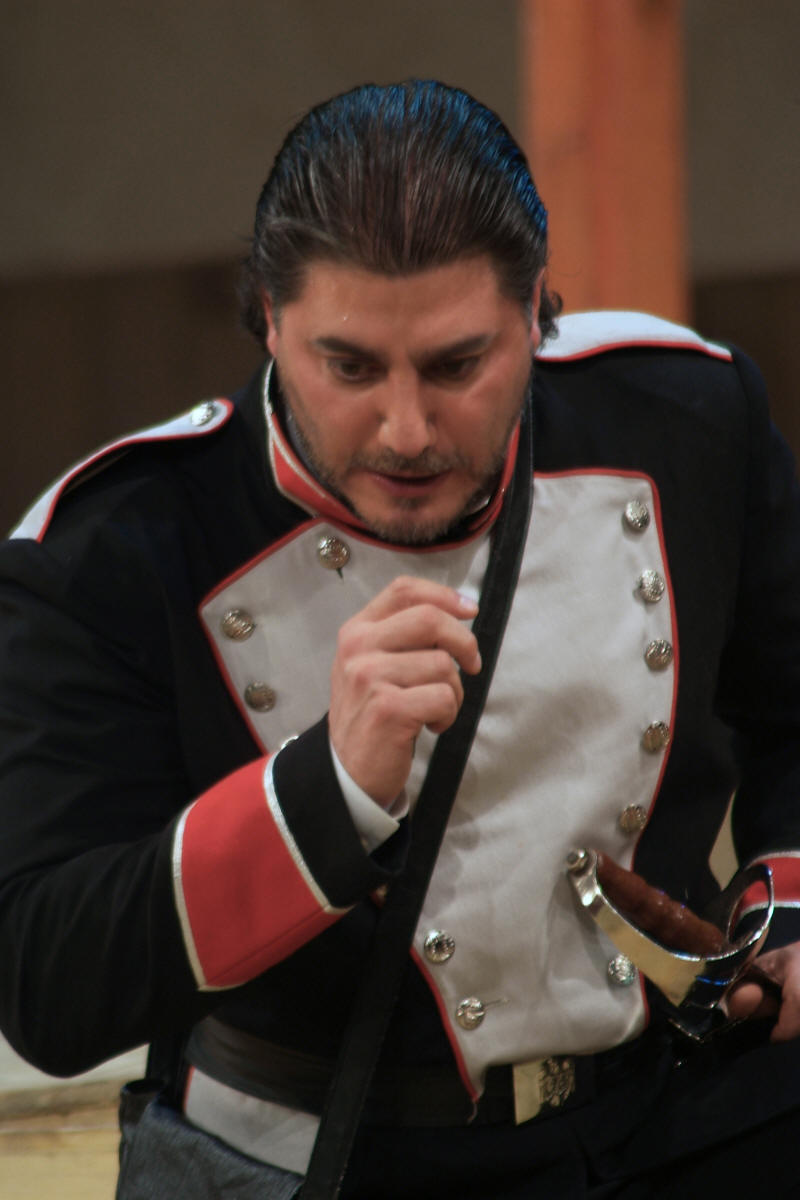
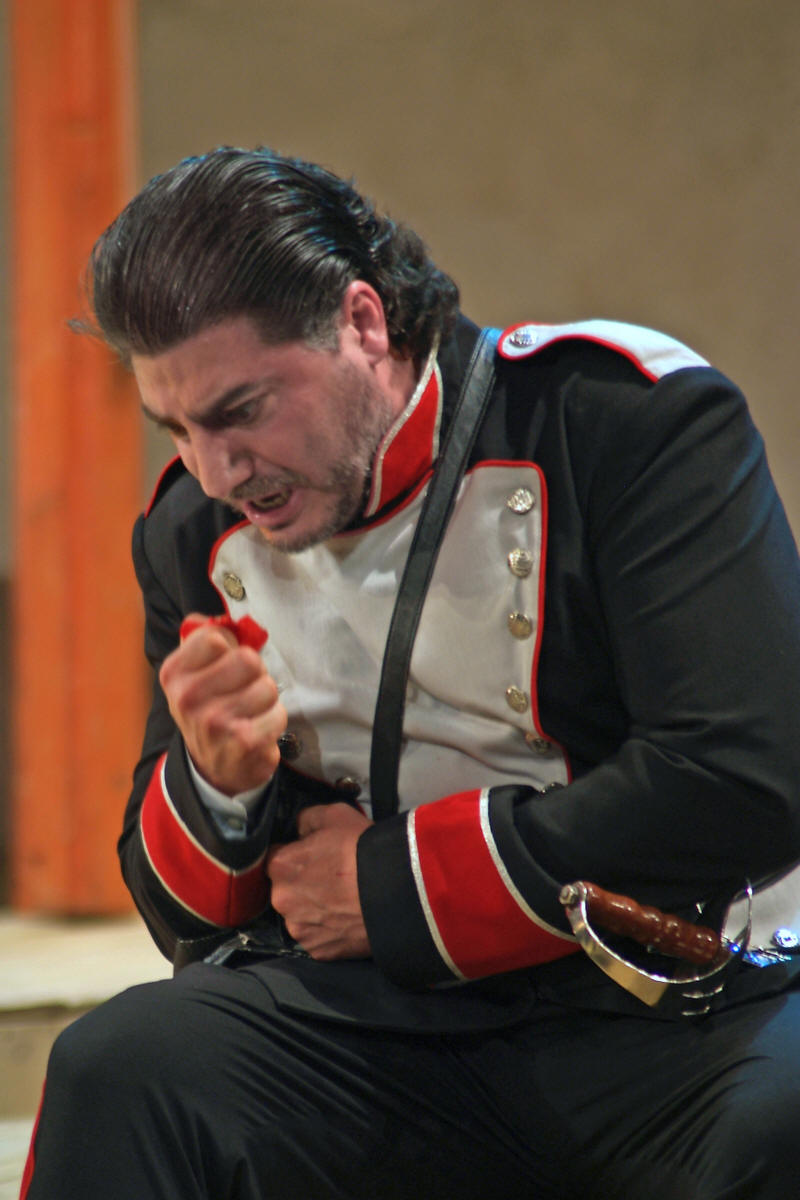
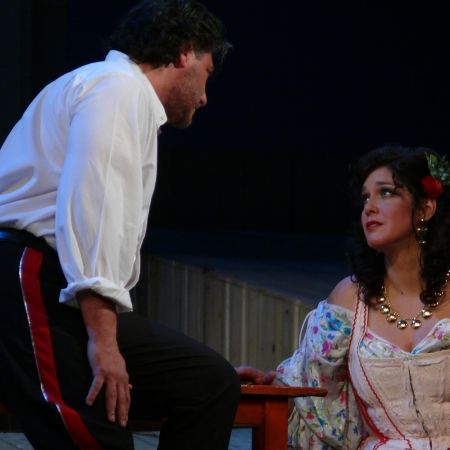
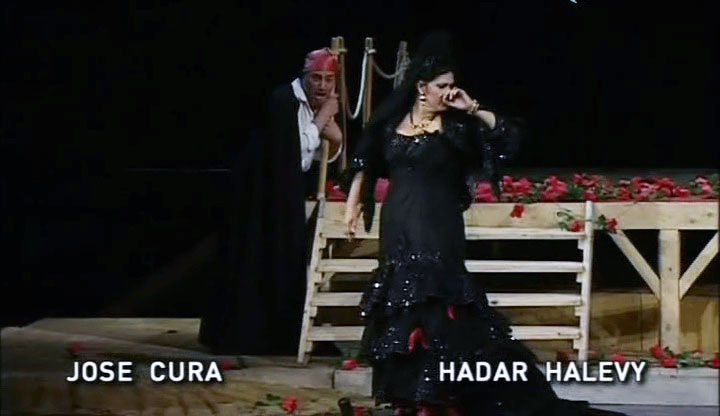
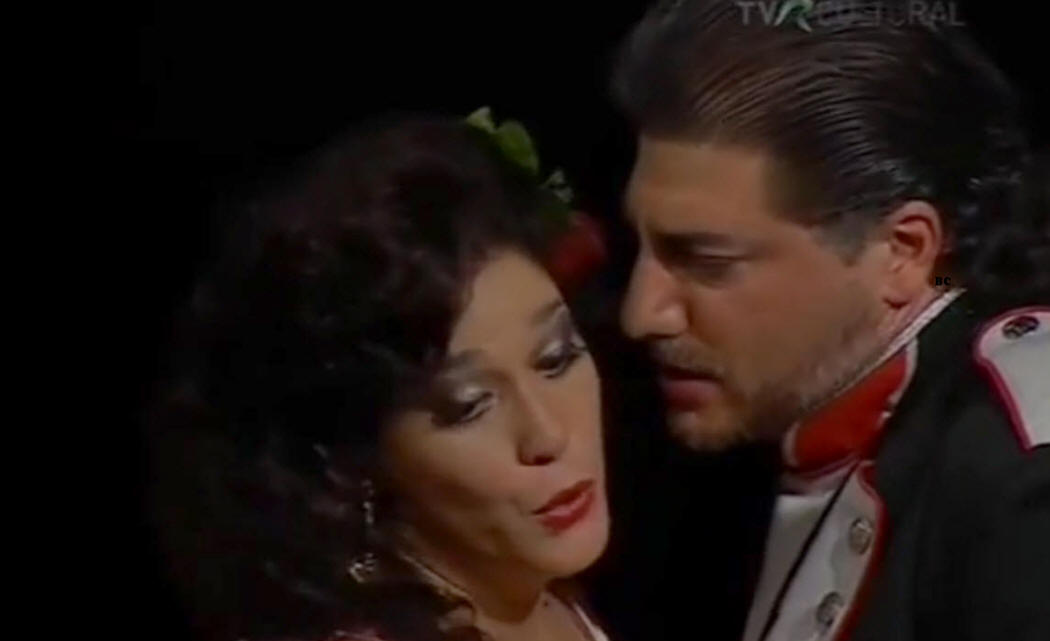
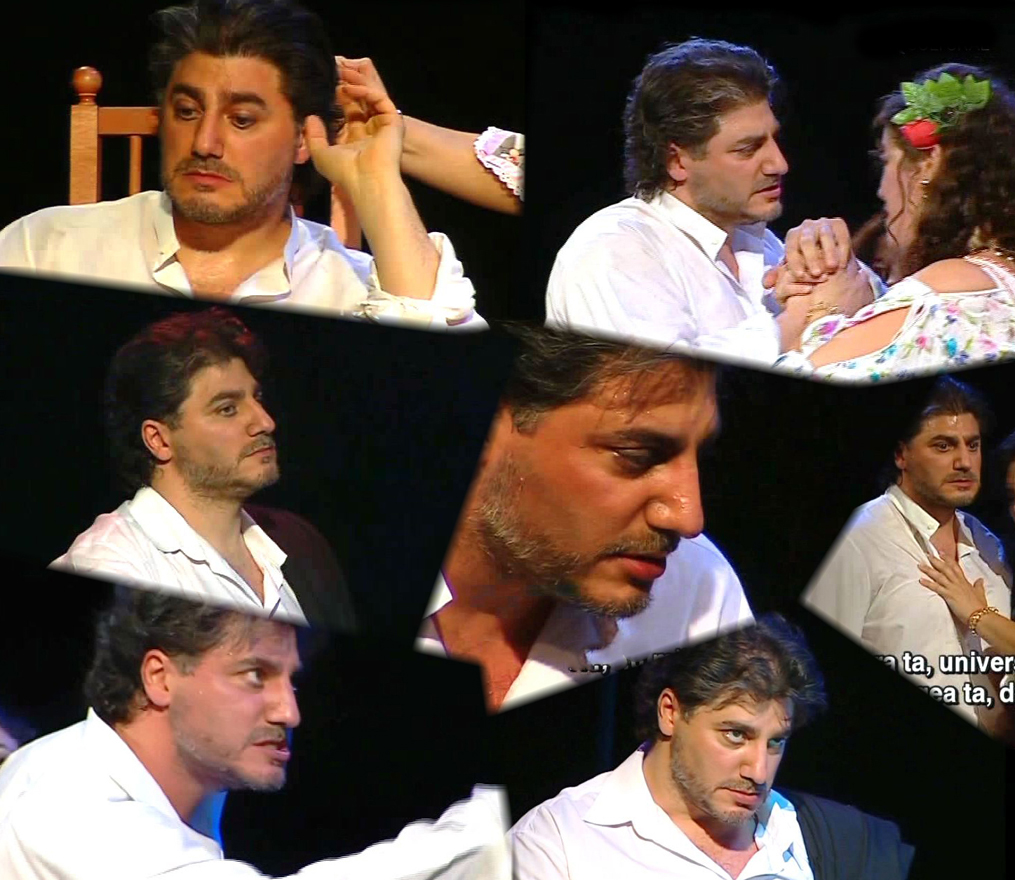
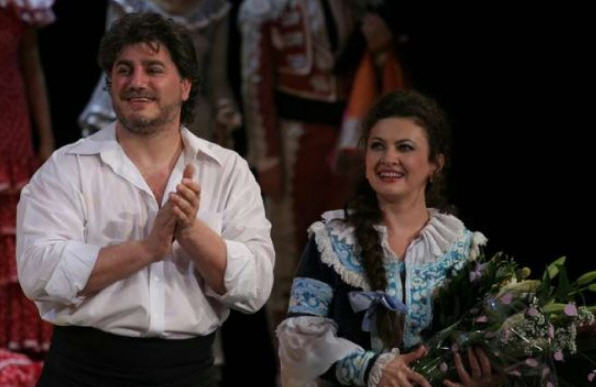
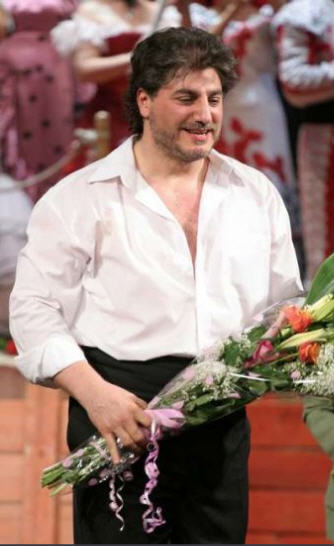

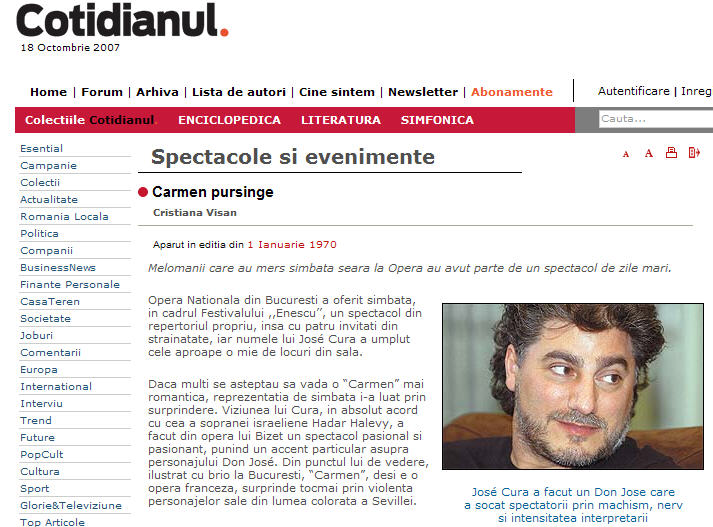




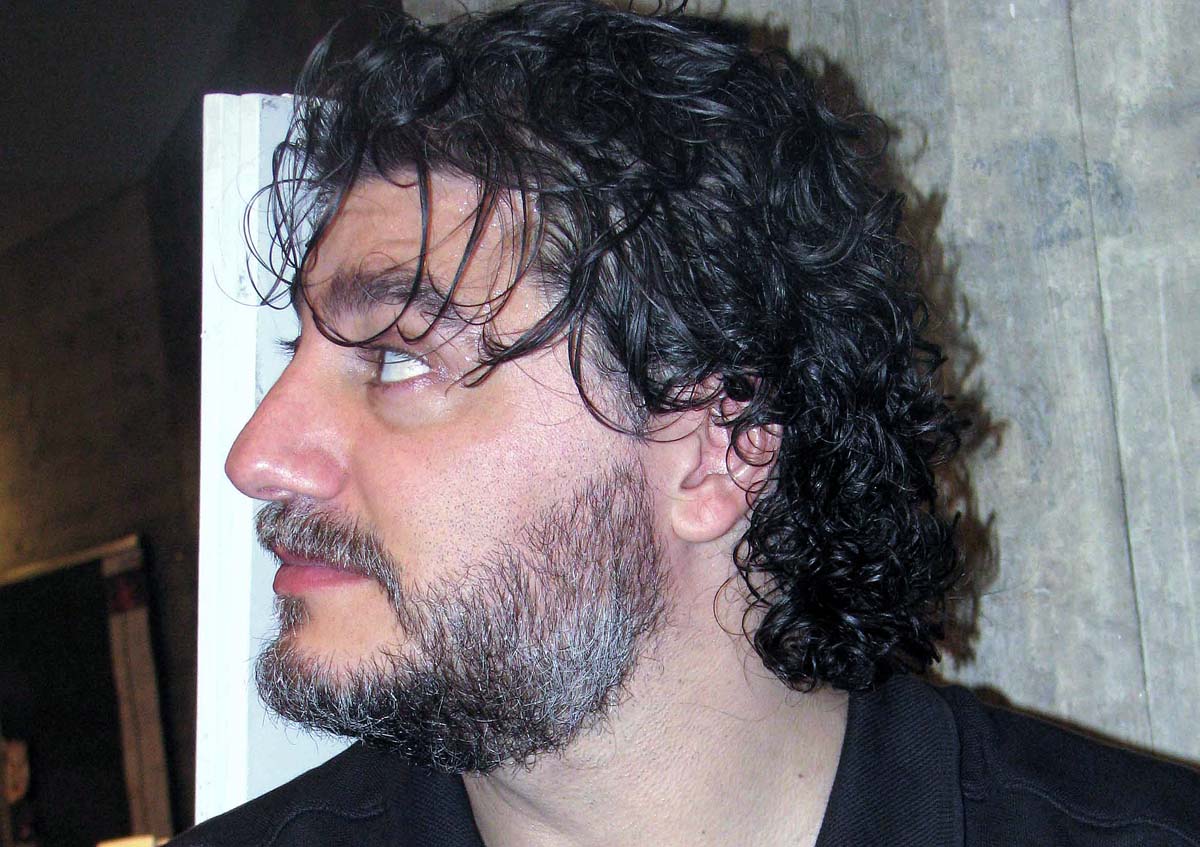
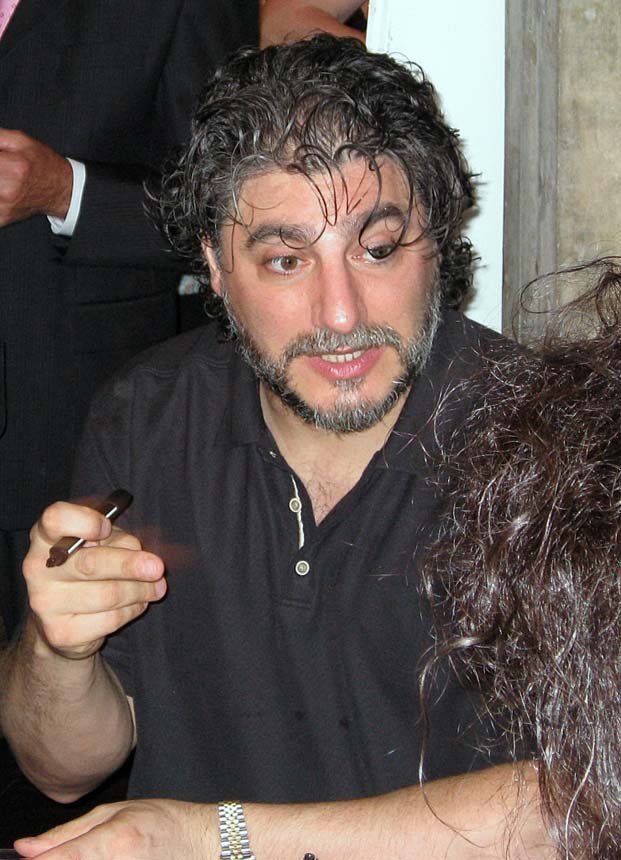

.jpg)
.jpg)
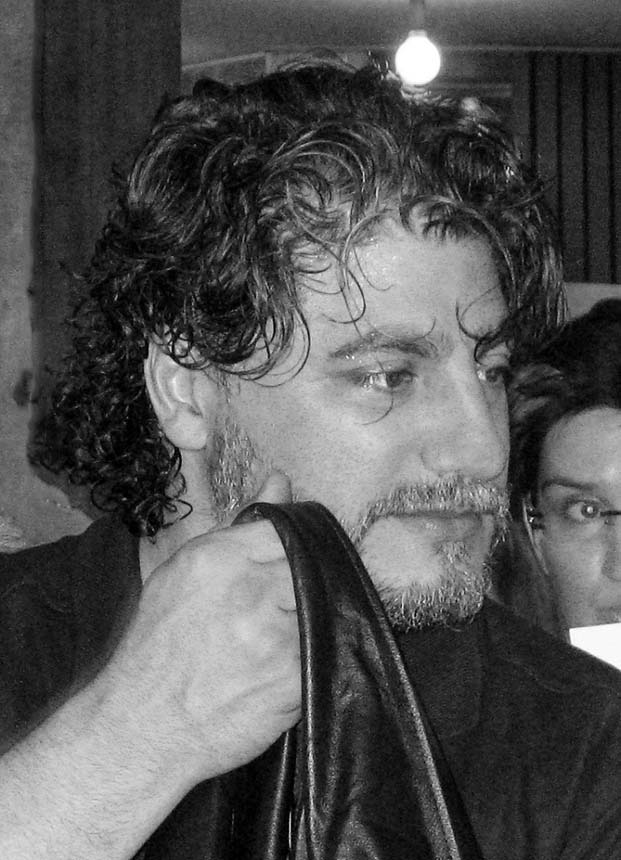
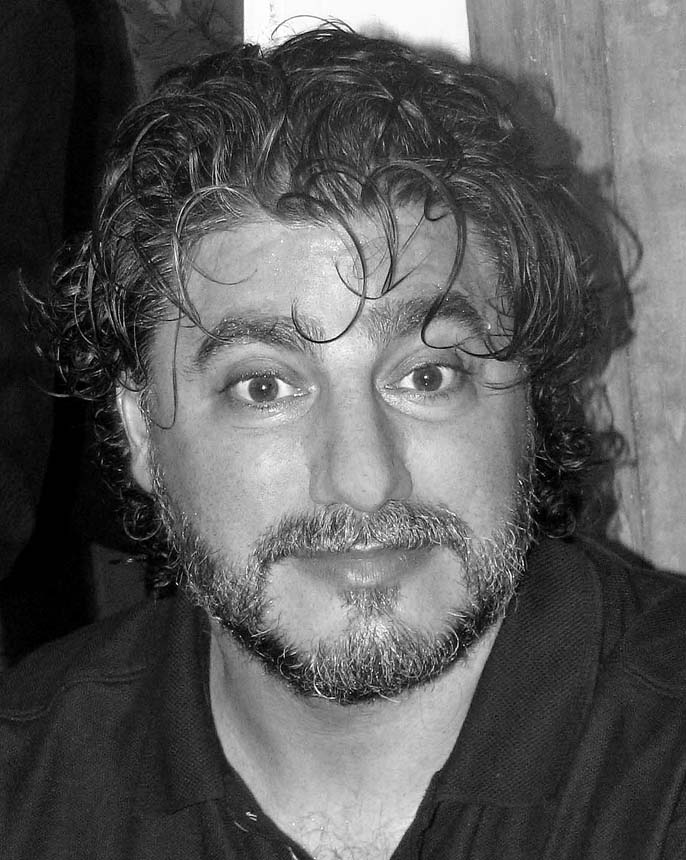
.jpg)



